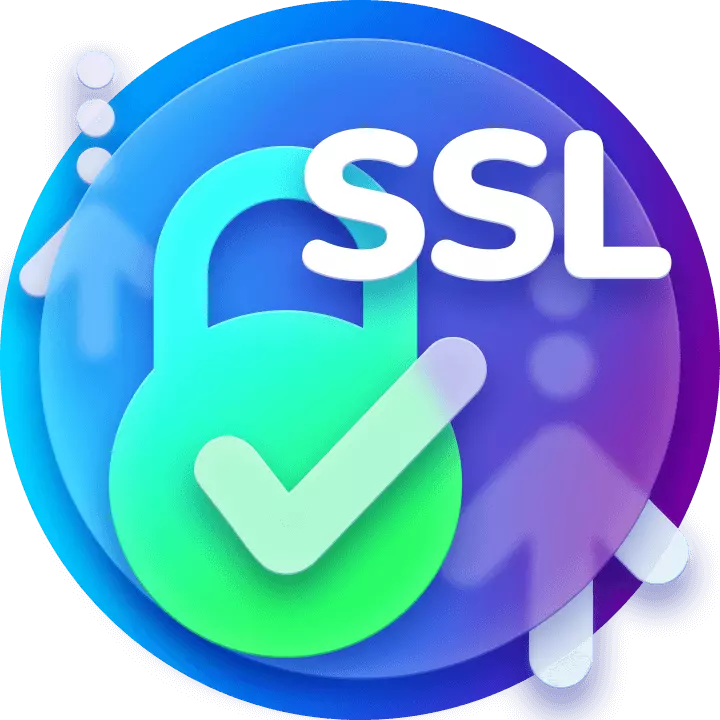Table of contents
Both at work and in our private lives, we use information available on websites, shop or log into accounts on various portals, including banking or those requiring our sensitive data.
When entering this information, we don’t always think about whether it is properly secured and whether it will be misused.
So what is worth paying attention to and what will guarantee our security?

What is SSL and how does it take care of security on a website?
SSSL (Secure Socket Layer) is a protocol that is used to encrypt data transmitted between a web browser and a server.
It is primarily used to secure sensitive data that users leave on a website. These include logins, passwords, credit card numbers and bank account related data, address, pesel number, medical records and many other sensitive information.
It is used to secure sensitive data that users leave behind on a website.
How, being a user, can you check if your data is secure?
You should check that the URL of a given page begins with the prefix 'https’ (Hyper Text Transfer Protocol Secure) and that the information contained under the padlock symbol in front of the address is up-to-date. The data we are primarily interested in is the expiration date of the certificate and the name of the company for which it was issued.
SLS certificate is based on asymmetric cryptography. It transmits data between the server and the browser using two related keys – public and private. One encrypts the data, while the other, which is confidential, is designed to read it.
SLS security has three primary functions:
- integrity – prevention of data alteration and corruption
- authentication – assuring users of the site’s credibility
- encryption – blocking access and reading of data
Types of SSL certificates
Certificate types differ primarily in the way they are validated. There are three basic types:
- Extended Validation (EV) – an advanced validation standard that provides the best effectiveness and trust, but requires the strongest verification of a website’s identity. This type of security is indicated in green in the browser bar.
- Organization Validation(OV) – security with a medium level of encryption. It involves verification of the domain owner and secondarily the identity of the company.
- Domain Validation (DV) – is a basic authentication, obtainable at the fastest rate. It only verifies that a person or company has the proper authority to use the domain. It is used most often by blogs or small sites that do not require input of data related to credit cards or bank accounts.
Benefits of using an SSL certificate
SSSL certificate is the standard used by most websites. On the one hand, this is due to concern for user security, but it also brings benefits to domain owners.
Increase website position in search results
For the past few years, Google’s policy has been strongly focused on acting for users and matching standards and websites to them. This is no different for SSL certificates.
Google, in an effort to ensure user security, is emphasizing the implementation of proper information encryption, especially on sites that require authorization or sensitive data.
Also, the developers of individual browsers have clearly defined rules regarding security certificates and limit the visibility of sites that do not have one. So it is worth remembering that proper implementation of an SSL certificate affects website positioning
Protection against data theft
On the Internet, we can encounter all sorts of scams. One of them is the phenomenon of phishing, which is the creation of fake versions of websites that visually resemble the original ones. Their goal is to extort sensitive data from users. Banking sites in particular are vulnerable to such attacks.
The implementation of an SSL certificate encrypts data, so no information reaches hackers and there is no danger of it being used for phishing or theft.
Domain credibility and authority
Information about a properly implemented SSL certificate is a signal to users that they can trust the site and their data is safe. This is especially important for online stores that require credit card, bank account or shipping address information.
Similarly for sites that require a pesel number or ID number.
Users are definitely more likely to return to a site that is credible and that they trust.
Data security on a website
The SSL certificate is one of the most important aspects affecting website security. However, there are several other factors to pay attention to when looking for information on the web or logging in using our data.
Both if you are a user and the owner of a website you need to remember appropriately complex passwords. When logging in to your account or admin panel use passwords consisting of lowercase and uppercase letters, numbers, and special characters
A common mistake made by site administrators is to leave the default login and password. Most often it is a combination of 'admin’ ; 'admin’ which is definitely easy for a potential hacker to guess.
When providing your bank account information, card number or other sensitive data, remember to check the credibility of the site in question. There are many ways to impersonate a trusted organization or bank and take over the data we provide. First check that the company data on the site is genuine and that the trust seal actually redirects to information that the site is secure and under constant control.
Following the above recommendations can protect our data from theft and will certainly keep us safe when using websites on a daily basis.
Was the article helpful?
Rate our article, it means a lot to us!